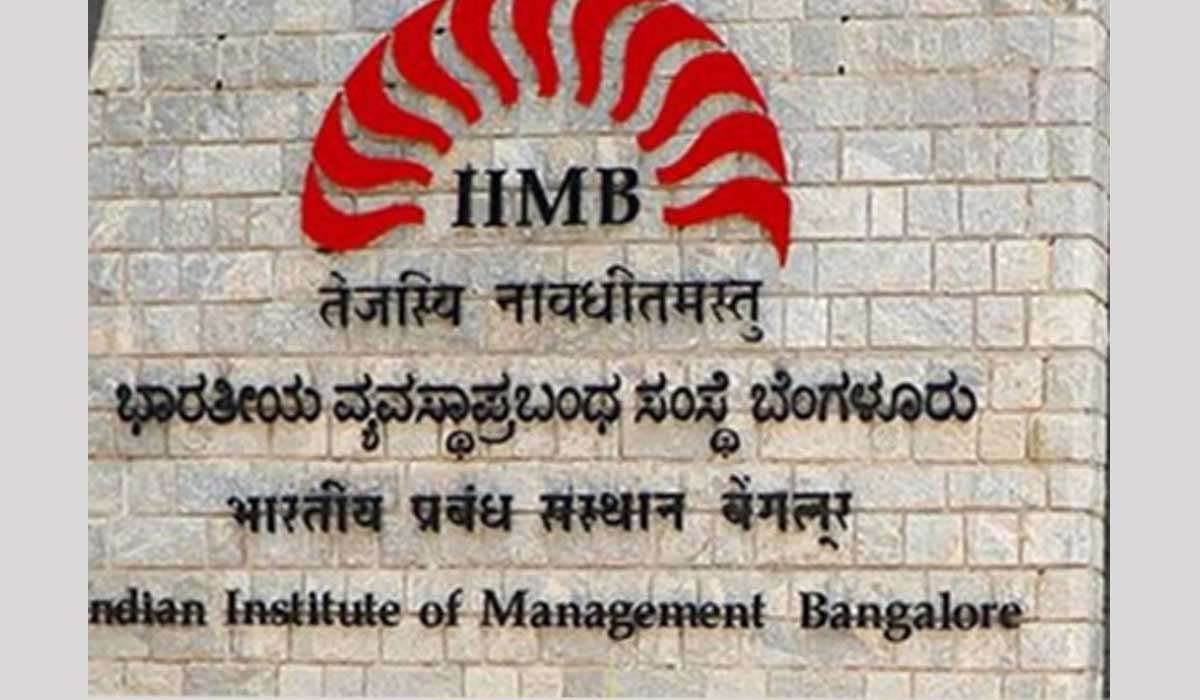ISO Certifies TCI-IIMBS GHG Emission Tracking Tool
Discover how TCI-IIMB’s Transportation Emissions Measurement Tool (TEMT) became India’s first ISO 14083-certified platform, revolutionizing GHG emission tracking in logistics.

Bengaluru: The TCI-IIMB Supply Chain Sustainability Lab at the Indian Institute of Management Bangalore (IIMB) has achieved a significant milestone, becoming the first organization in India to secure ISO 14083 certification for its innovative Transportation Emissions Measurement Tool (TEMT). This groundbreaking achievement underscores the Lab’s dedication to sustainability and the accurate quantification of greenhouse gas (GHG) emissions.
Pioneering Sustainability in Transportation
The TCI-IIMB Supply Chain Sustainability Lab, established in collaboration with the Transport Corporation of India (TCI), developed TEMT to address the growing need for reliable tools that enable organizations to measure, manage, and reduce transportation-related emissions. With ISO 14083 certification, the tool has been recognized for its ability to meet global standards in GHG emission quantification and reporting.
What is ISO 14083?
ISO 14083 is a globally accepted standard developed by the International Organisation for Standardisation (ISO) to quantify GHG emissions from transport operations. It applies to various modes of transport, including:
- Road
- Rail
- Air
- Maritime
- Inland Waterways
The standard provides detailed methods for calculating emissions, specifying data requirements, and setting reporting guidelines. It ensures that organizations can implement standardized frameworks to accurately track emissions, aiding informed decision-making on emission-reduction strategies.
TEMT: A Revolutionary Emission Tracking Platform
The Transportation Emissions Measurement Tool (TEMT) is a comprehensive digital platform designed to measure emissions across all transportation modes. Its key features include:
- India-specific Emission Factors: Validated through ISO 14083 certification, ensuring accuracy and relevance.
- Comprehensive Tracking: Calculate emissions for past and future shipments.
- Mode Comparison: Analyze emissions across different transport modes for specific routes.
- Customizable Chains: Build tailored transportation chains and securely store data for monthly and yearly comparisons.
- Commodity-Agnostic: Applicable to all shipment types.
This tool empowers organizations to take the first critical step in mitigating emissions by offering transparency and actionable insights into their transportation-related environmental impact.
Why Accurate Emission Measurement Matters
India’s transportation sector is responsible for approximately 14% of the country’s total GHG emissions, with freight transportation accounting for nearly 40% of CO2 emissions within this sector. Without interventions or cleaner technologies, these emissions are projected to quadruple between 2016 and 2050, potentially reaching 1.17 billion tonnes of CO2 by 2050 and increasing the transportation sector’s share to 19% of total emissions.
Accurate measurement of emissions is crucial for:
- Setting Baselines: Understand current emission levels to implement reduction strategies.
- Regulatory Compliance: Align with global and national emission standards.
- Sustainability Goals: Meet organizational objectives for reducing carbon footprints.
Integration with ULIP for a Sustainable Future
NICDC Logistics Data Services Limited (NLDSL), a subsidiary of the National Industrial Corridor Development Corporation (NICDC), has integrated ISO 14083-certified emission factors API into its flagship programme, the Unified Logistics Interface Platform (ULIP). This integration facilitates:
- Seamless Emission Calculations: Empowering users to measure freight emissions accurately.
- Data-Driven Decisions: Enable trade and logistics players to shift towards sustainable practices.
- Modal Shifts: Promote the adoption of environmentally friendly transportation modes.
Girish Kumar Surpur, CEO and Director of NICDC Logistics Data Services, highlighted that ULIP’s Carbon Emissions API, developed in collaboration with the TCI-IIMB Lab, is a game-changer for India’s logistics ecosystem. He stated, “By calculating emissions and utilizing data sources available with ULIP, companies can develop tools necessary for actionable decisions on sustainability. Together, we can drive meaningful change towards a lower-carbon logistics ecosystem.”
Driving Change in India’s Freight Sector
India’s freight transportation sector plays a critical role in the country’s economic growth. However, its environmental impact cannot be ignored. The TEMT platform provides:
- Sustainability Insights: Helping organizations transition to greener logistics solutions.
- Emission Comparisons: Offering data for informed decisions between transportation modes.
- Scalability: Ensuring the tool can adapt to the growing demands of the industry.
Key Benefits of ISO 14083 Certification for TEMT
- Global Recognition: Establishes credibility in emissions tracking.
- Enhanced Accuracy: Ensures reliable and validated data.
- Regulatory Alignment: Meets international and national reporting standards.
- Promotes Sustainability: Drives the adoption of low-emission practices in logistics.
The Road Ahead
The ISO certification of TCI-IIMB’s TEMT represents a significant step toward creating a sustainable logistics ecosystem in India. With tools like TEMT, organizations can not only measure their carbon footprint but also take meaningful actions to reduce it. The integration with platforms like ULIP further amplifies its reach, promoting transparency and accountability across the supply chain.
As India strives to balance economic growth with environmental sustainability, innovations like TEMT serve as a beacon for change, encouraging industries to adopt cleaner, greener practices for a sustainable future.
